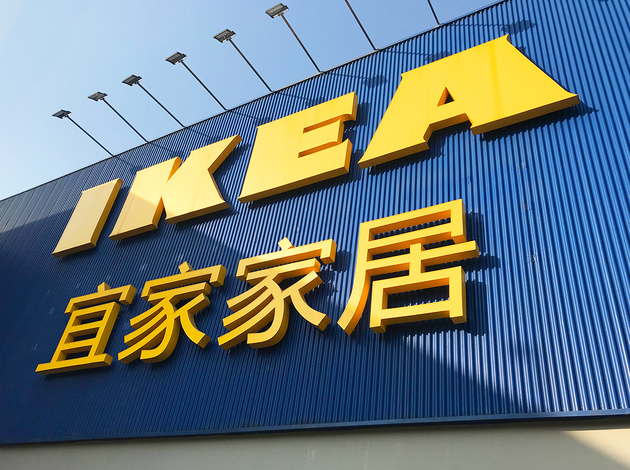
Photo/Du Yang
Nov. 26 (NBD) – Ikea plans to open three mixed-use developments in China, as part of the furniture giant's global investment in real estate and transformation of business model.
The three projects are commercial complexes that integrate Ikea's shopping center brand LIVAT Centres with Ikea stores and other Ikea-inspired buildings, unlike the typical warehouse-style Ikea stores located on the city outskirts.
The 1 billion euro (1.1 billion U.S. dollars) Shanghai project, for example, include a smaller Ikea store, 300 other stores, public space, a roof garden, a Scandinavian-styled street and five office towers, according to a report by Commercial Observer. The office building will house 2,000 to 3,000 Ikea and Inter Ikea staff after its completion in 2022.
The other two LIVAT projects are located in central China's Changsha and northwest's Xi'an. Ikea already has three LIVAT Centres in Beijing, Wuxi, and Wuhan.
The projects belong to the 5.8 billion euro(6.6 billion U.S. dollars) investment by Ikea's property division Ingka Centres to develop like centers in Europe, Asia and North America, guided by "a whole new way of thinking around shopping centers", as Gerard Groener, global managing director of Ingka Centres, said to Financial Times.
The reason for heavy investment in offline shopping centers, according to Shen Jun, a veteran analyst of the retail industry, is the slow progress Ikea has made in e-commerce, and Ikea sees commercial property as a new growth opportunity.
The investment marks Ikea's rethinking of its business model as the changing of consuming habits, especially the rapid development of e-commerce, has deeply impacted global retail industry, sending time-honored brand like Sears to bankruptcy.
In China, for example, Ikea's growth is losing momentum. According to public data, the company's sales in China is predicted to surpass 14.7 billion yuan (2.1 billion U.S. doallars) for the financial year 2018, representing a 9.3 percent year-on-year increase, but the metrics for the financial year 2016 and 2017 were 19.4 percent and 14 percent, respectively.
Besides the real estate investment, Ikea announced on 22 November its plan to cut up 7,500 jobs globally in two years, which is the biggest restructuring in the company's history.
The cost of brick–and-mortar retailing is becoming intolerable compared with that of e-commerce, said Shen Jun, therefore, jobs that do not bring profit directly become the targets of Ikea's lay-off.
The job cuts involved are mostly office positions like PR, HR and administration, of which 160 are in China. The lay-off will not affect Ikea's development strategy in China, says general manager of LIVAT Centres Zhu Hanhui.
At the same time the company plans to open 30 small stores globally and invest in delivery, logistics and digitalization, which are expected to create 11,500 new jobs.
Email: limenglin@nbd.com.cn


 川公网安备 51019002001991号
川公网安备 51019002001991号





